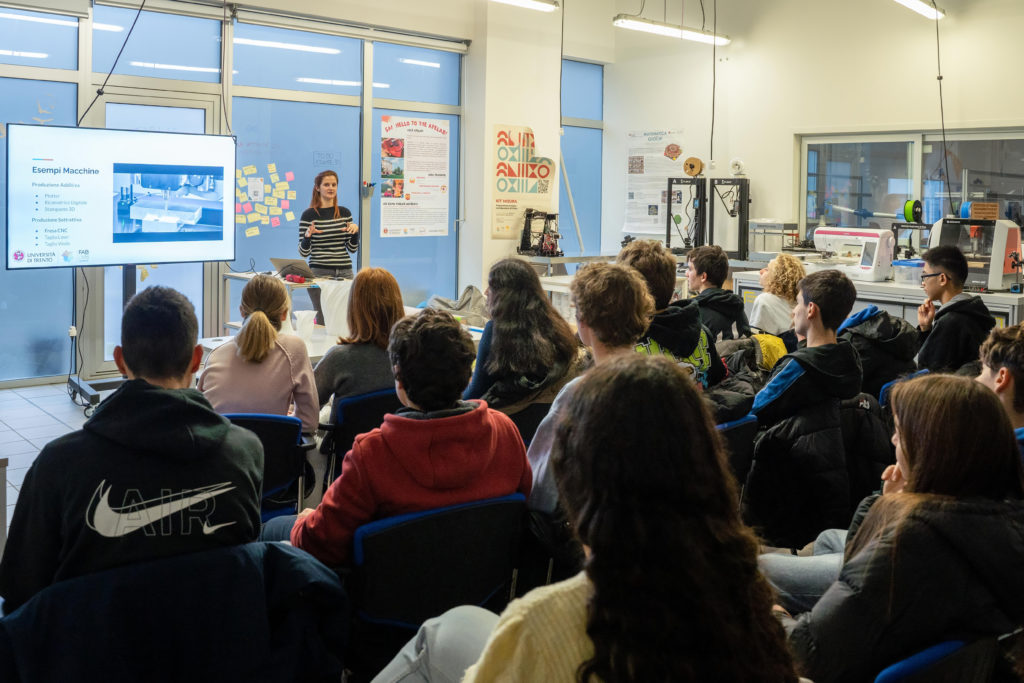APELAB
Can we take science outside the usual institutional boundaries? Sure. “ApeLab” is a mobile FabLab, a small itinerant experimental laboratory for social innovation at the service of the community, capable of activating processes of formal and informal learning, creative and innovative co-design and empowerment in those who interact with it. It is a meeting space that makes (almost) everything “possible” thanks to the sharing of knowledge, skills and machinery in full FabLab spirit.
Guided by the experts of Fablab Unitrento and GLOW, technology becomes a tool within everyone’s reach, capable of creating connections, innovative models and developing ideas at the service of the territory. All with dedicated science workshops, with a more accessible language, with the goal of being informative and captivating.
If you would like to keep up on the latest content, follow @pinkapelab in Instagram!
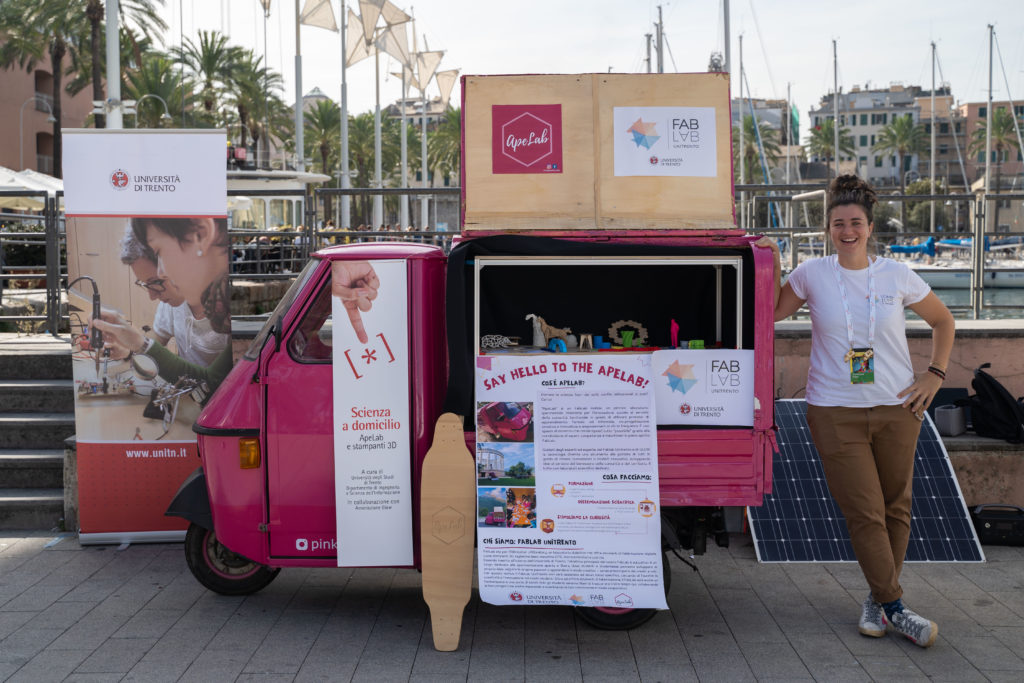
STEM KIT
This project aims to connect two subjects that are normally taught separately: physics and computer science. Interdisciplinary educational paths have been designed to make use of new technologies related to low-cost sensor systems (such as Arduino and Micro:bit) and aim to promote technical-scientific culture in the schools. More specifically, these consist of purpose-designed and purpose-built kits composed of hardware and sensor systems and instrumentation, aimed at the realization of personal experiments, made through the purchase of easy-to-find and low-cost components.
Parallel to the kits, documentation for teachers/trainers and worksheets for students are also proposed, illustrating the possibilities offered by the kits while also promoting personal exploration. One of the strengths of the project is to enable the introduction of computer science related topics in school settings that often lack coding , a phenomenon that is now unacceptable for the digital context we live in on a daily basis.
Learn more about the project on https://leveluptrento.com/kit/
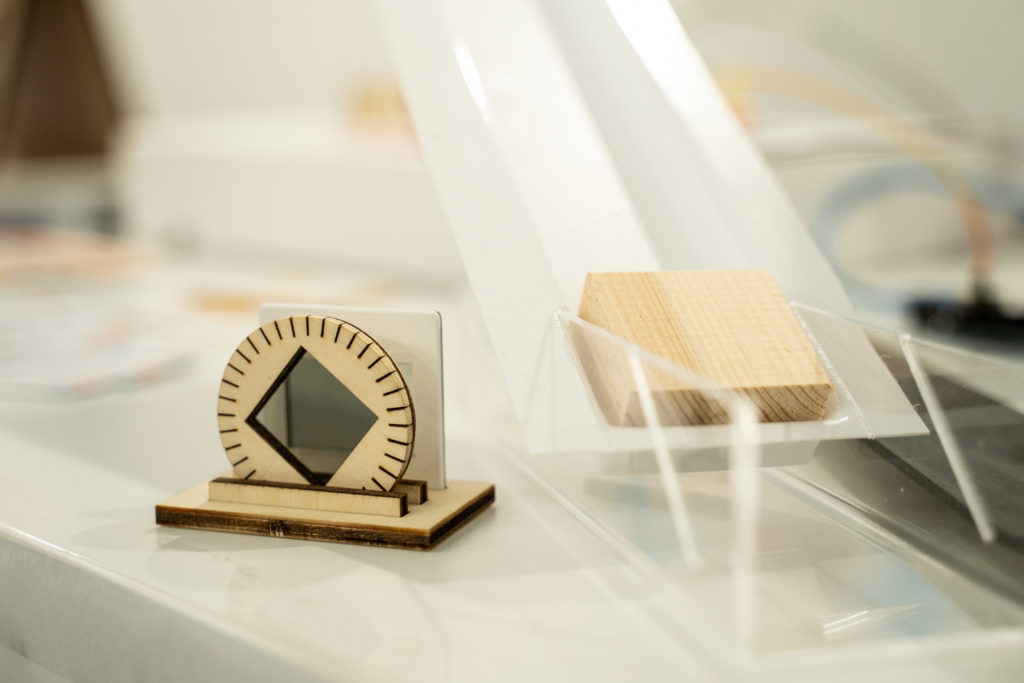
TEACHERDOJO
TeacherDojo is a workshop aimed at primary and secondary school teachers on the topics of teaching computer science, computational thinking and creative learning. The course focuses on teaching computer science without computers, visual programming and maker activities. The workshop allows teachers to learn how to use creative software and innovative technologies, and how to pass this knowledge on to students to introduce them to the world of computer science in a fun way.
The workshop title comes from the CoderDojos, which are programming clubs for kids, and illustrates the spirit of the workshop. The teacher is at the center of the course; the word dojo (“gym” in Japanese) denotes a common space where teachers meet to “train” with new technologies, guided by experienced trainers, teachers themselves, trying to put into practice immediately what they have learned. 173 teachers participated in the three-day workshop, which included 21 classes and 75 hours of training.
Learn more about TeacherDojo here.
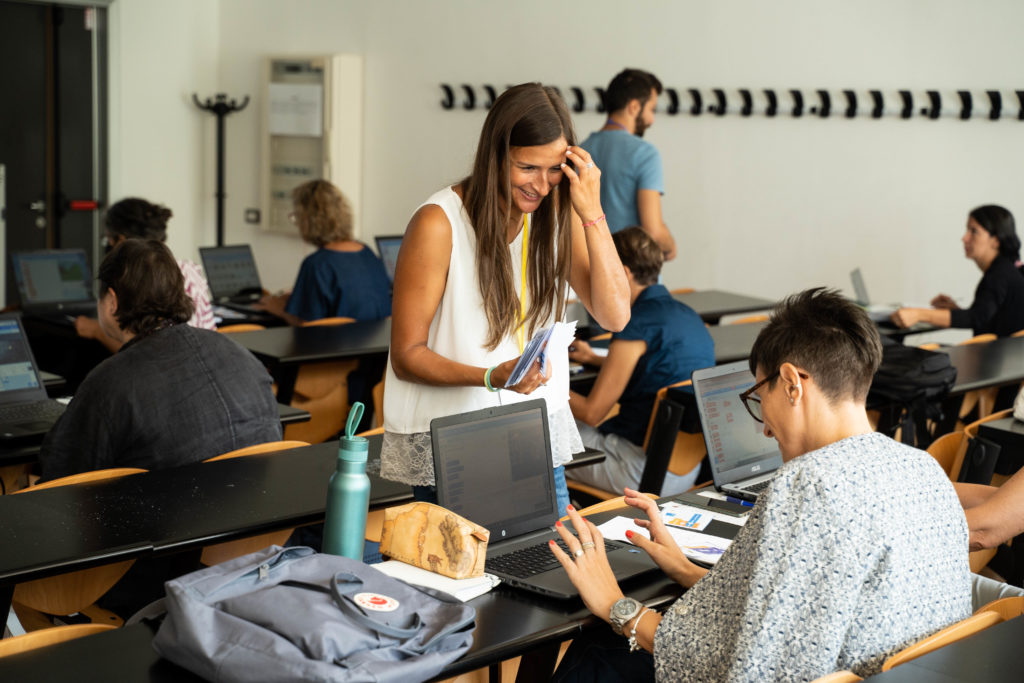
MATHEMATICAL GAMES
The project “Matematica in Gioco” was the result of a collaboration between the PopMat Laboratory of the Department of Mathematics, the FabLab of the Information Engineering and Computer Science, and involved a group of students from the Bachelor in Mathematics and 19 high school students (8 students from Liceo Scientifico, 7 from Liceo Artistico, 3 from the Manufacturing Designer course and 1 from Liceo Classico). The project participants were able to design, implement and test some original proposals for mathematical games.
Prototypes were made for strategic games such as Be4After, in which all other players’ pawns must be stolen in order to win, and Millennium, which involves solving puzzles while learning about how mathematical knowledge develops and how it acquires scientific status in the international community. Calcolaχ is a mathematical take on the classic “Guess Who” and is designed to have different versions, while in the game I Numeri Principi, inspired by the famous “Scrabble”, the goal is to obtain prime numbers through mathematical operations. Finally, RandomCards is a Telegram bot that extracts puzzles used in some of the proposed games from a database. To date, the database contains cards made by students but it is constantly expanding and anyone can contribute.
The project involved several experts who covered theoretical and technical topics relevant to the project (historical and educational aspects of mathematics, use of software and machinery for prototyping). Participants contributed to the project through individual and group work dealing with: analysis of playability, care of the graphic part, consultation of historical-mathematical sources, practical realization of the game components, writing of the rules.
All files created during the project to make the games using a 3D printer or laser cutter are available at this link, along with the rules of the games.
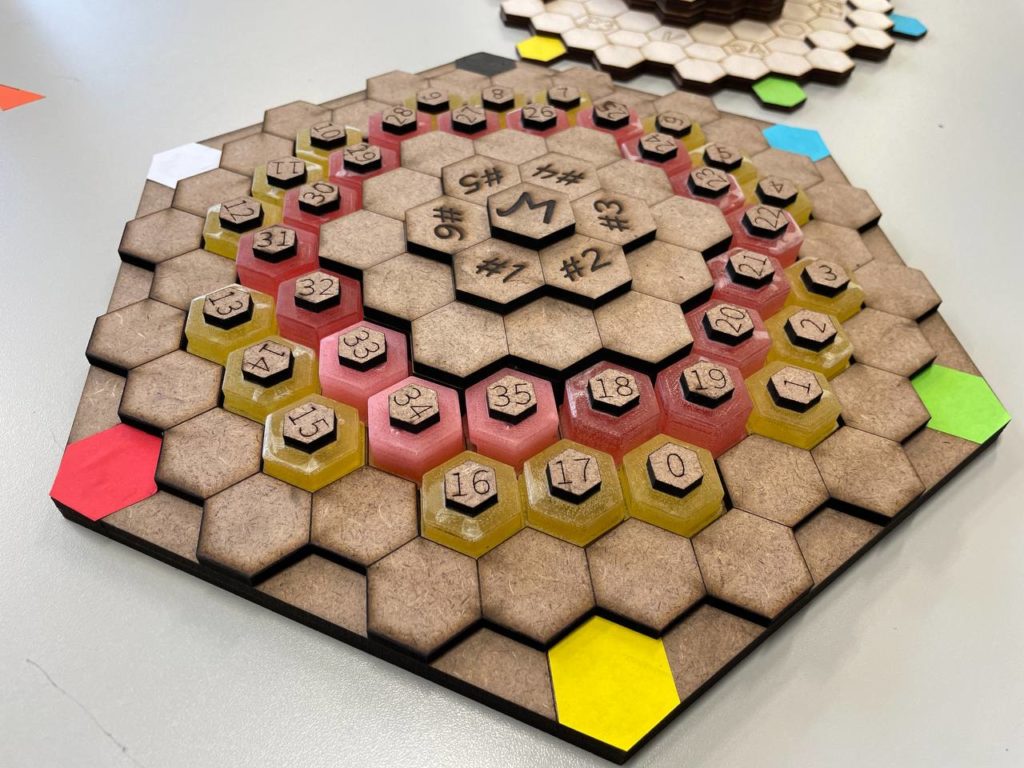
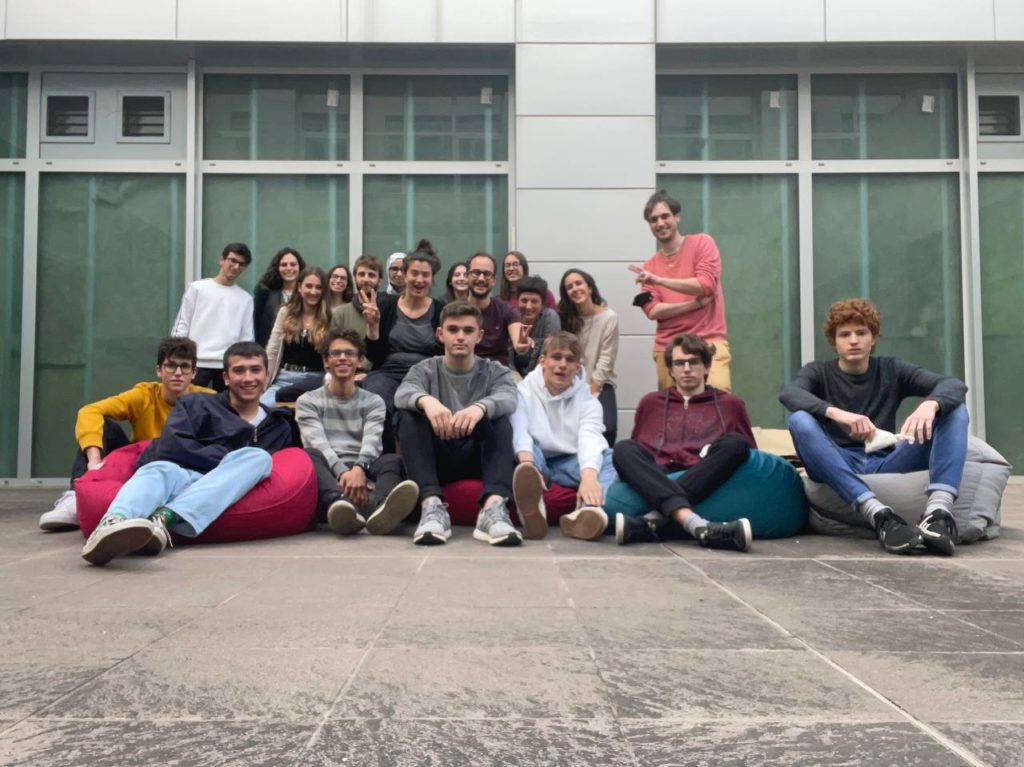
CT-ACADEMY
The project Erasmus+ Computational Thinking Academy for Inclusion (CT-Academy) started in February 2022, with the goal of bringing teachers closer to computational thinking while trying to make a contribution in bridging the gender gap in STEM subjects.
The project will develop a Computational Thinking Academy (CT-Academy): a collection of resources specifically designed for primary school teachers to help the integration of computational thinking in their courses. The academy will provide 1) a handbook designed for teachers illustrating the cultural and scientific aspects related to computational thinking; 2) a Massive Open Online Course (MOOC) on the technological aspects; 3) CPD (Continuing Professional Development) courses that help teachers to embed computational thinking in a cross-cutting and gender equality way within their own school.
The partners of the project are Catholic Education Flanders (Belgium), Ingenious Knowledge (Germany) and Östra Grundskolan (Sweden).
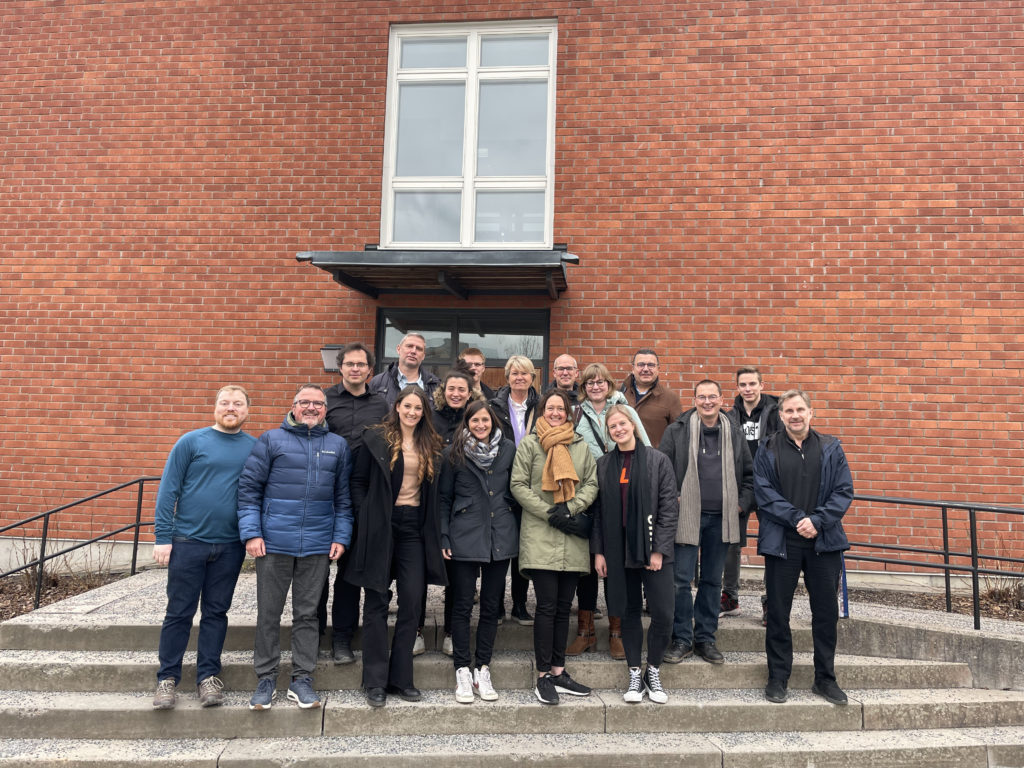
BIOINFORMATICS
This project is a 40-hour course offered to 4th grade students in high schools in the Province of Trento, organized by the Department of Information Engineering and Computer Science (DISI) and the Department of Cellular, Computational and Integrative Biology (CIBIO).
The course focused on some activities in the Bioinformatics field, where technology enables students to address biological questions and analyze data from experiments, through analytical and quantitative approaches of computer science. In particular, the main focus of the course was the analysis of DNA sequences for the identification of mutations related to genetic diseases.
The course included training moments on tools and techniques specific to computer science and biology, group activities that allowed students to work on their own projects under the guidance of experienced mentors, and moments of preparation in preparation for a public presentation of the work done.

WORKSHOPS
To enable students to learn how to use the machines in the FabLab, workshops are organized on a regular basis. The point of the workshops is to make the participants as autonomous as possible, in order to use the machines for their own projects without the need to be constantly followed by a tutor.
We presented introductory workshops such as 3D Printing Basics, Laser Cutting & Vinyl Cutting and Introduction to Parametric 3D Design and more technical ones such as Electronics Design Basics with KiCAD, 2.5D CNC Milling and Engraving with Fusion 360 and Design your own USB Keyboard.
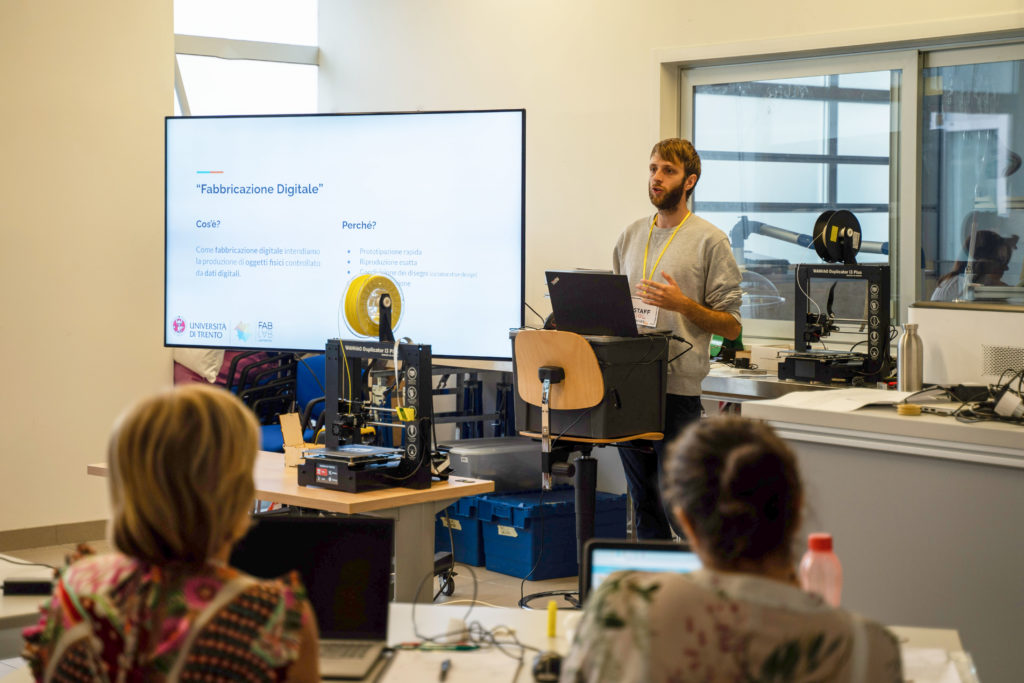
INTERNSHIPS
During Spring 2022, the FabLab hosted students from MaDe – Manufacturing Designer institute in Rovereto for an Alternanza Scuola Lavoro.
MaDe students are trained to know how to use digital manufacturing tools, know modeling techniques, craft and industrial procedures and rules for fast-prototyping. Therefore, their internship at the FabLab was an opportunity to get involved in a different context, where they had the chance to work on new projects and get in touch with the university.
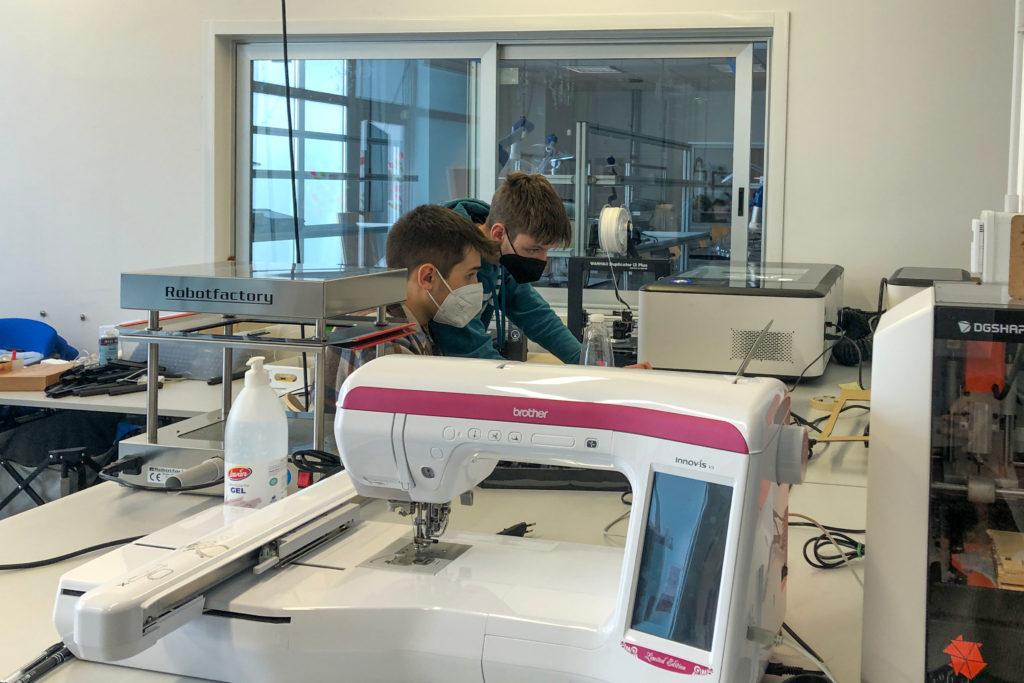
MOQA SYSTEM
The project involves the development and implementation of MOQA, a low-cost smart hub for data collection and performance optimization, developed within a PhD at DICAM (Eng. N. Callegaro – supervisor Prof. R. Albatici). MOQA is a plug-and-play system, wireless and able to connect, without the need for wiring or invasive modifications of the electrical system, with almost all commercial and professional sensors and devices (even those already present in many buildings). The system was created with the goal of combining the worlds of smart home and energy consulting: with the ability to collect a large amount of data in an organized manner, the algorithm quickly learns how to adjust and automate routines, monitoring and improving the living experience within these spaces.
As of July 2022, the system has found a home in the University of Trento’s Fablab: here, the system offers the dual capability of displaying thermal comfort and air quality data from the lab on a monitor in real time, and collecting this information in a local, cloud-based facility for analysis. The power consumption of two 3D printers and two laser cutting machines are also monitored and displayed, with the possibility of adding additional machines. The system provides the additional possibility of automating these machines by managing them, or possibly shutting them down, remotely as well, thus limiting their consumption to only hours of operation and reducing their costs. The interface is available to anyone who enters the laboratory, with the aim of making users aware of their energy and environmental impact.
Discover more about the project here.
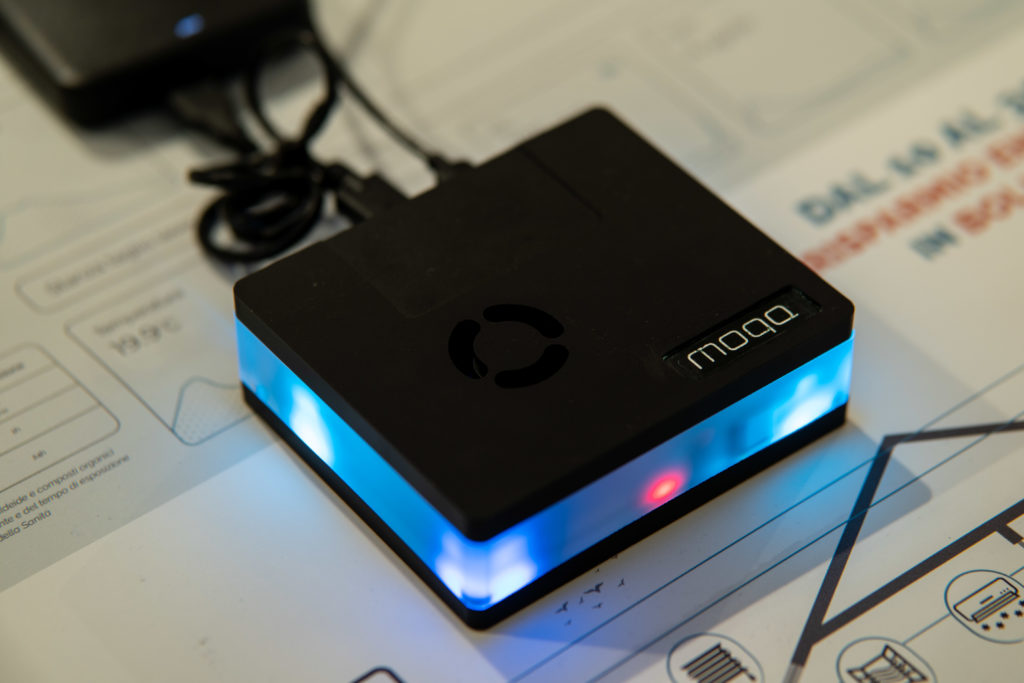
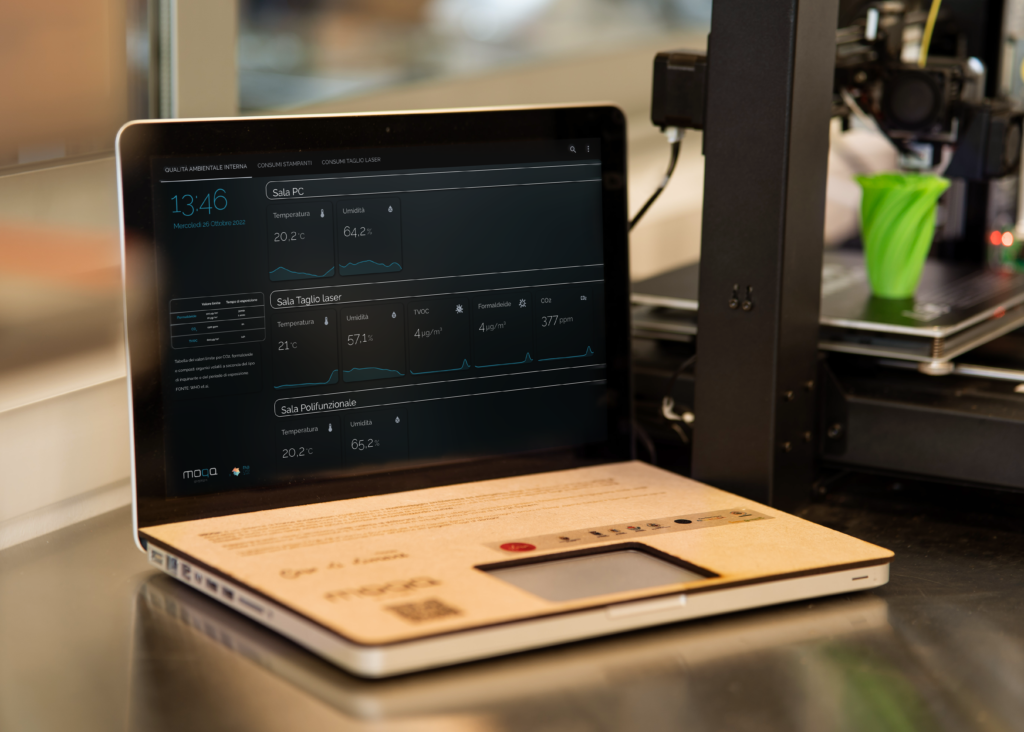
U-FAB
Our FabLab is part of U-FAB, the Italian network of university FabLabs and makerspaces.
U-FAB is a network that was created to stimulate collaboration among Italian university FabLabs and makerspaces and, more generally, among academic spaces and laboratories that are characterized by the development of educational and scientific activities based on digital fabrication.
Discover more about U-FAB here.
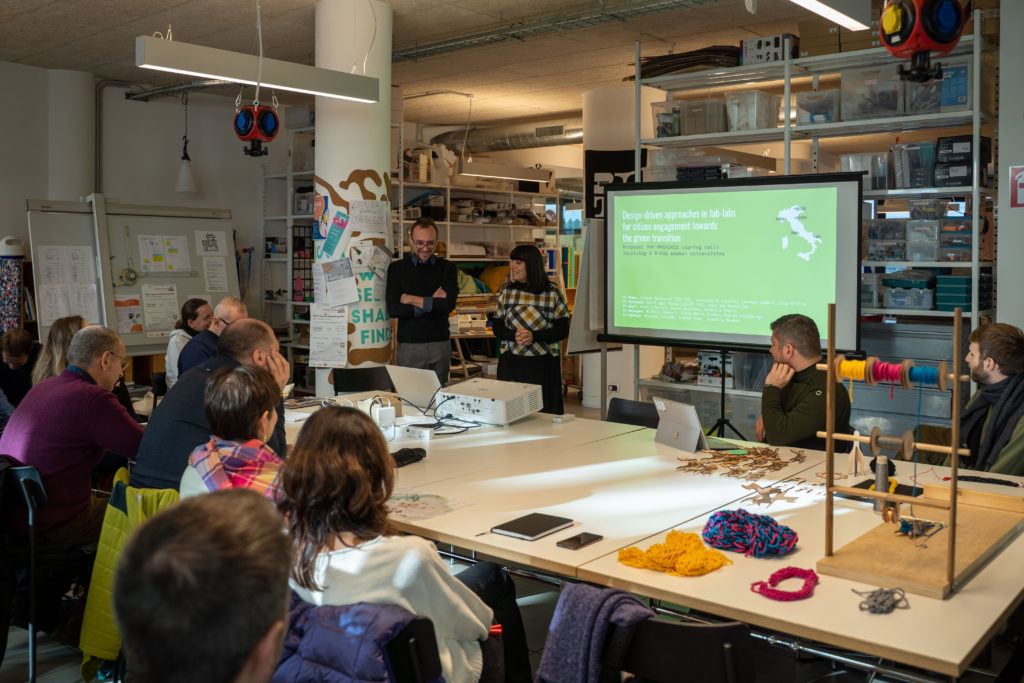
HACKATHONS
Our FabLab is also a hub for hackathons and competitions.
It hosted DigiEduHack, a worldwide competition focused on digital innovation in education, programming competitions such as Google HashCode and Reply Code Challenge, and has collaborated with others to organize several events including OpenAccessHackathon and Arduino Week in collaboration with Muse and iProduce – Co Creation Hackathon in collaboration with Trentino Sviluppo and HIT – Hub Innovazione Trentino.
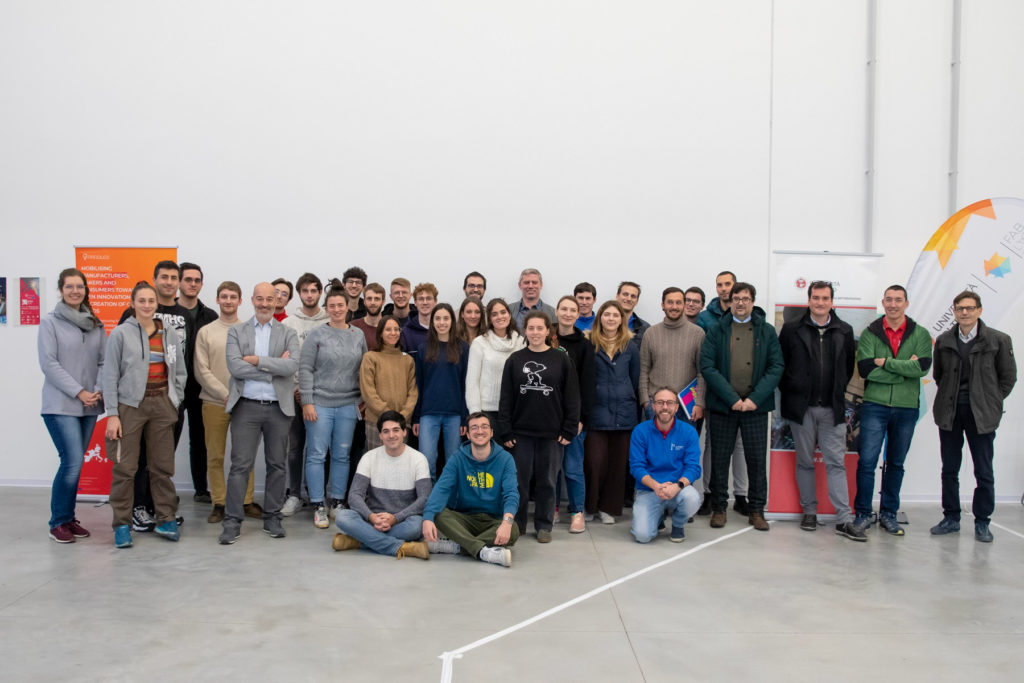
EVENTS
The FabLab is also used for events and conferences.
We have hosted talks in the field of Data Science, such as The Data Scientist’s Swiss Army Knife with Cristian Consonni and The Creativity of Data and the OpenStreetMap Ecosystem with Maurizio Napolitano, and organized events in collaboration with realities such as E-Agle Trento Racing Team.
We also proposed moments for co-designing activities to get an idea about the interests of the students attending the FabLab.
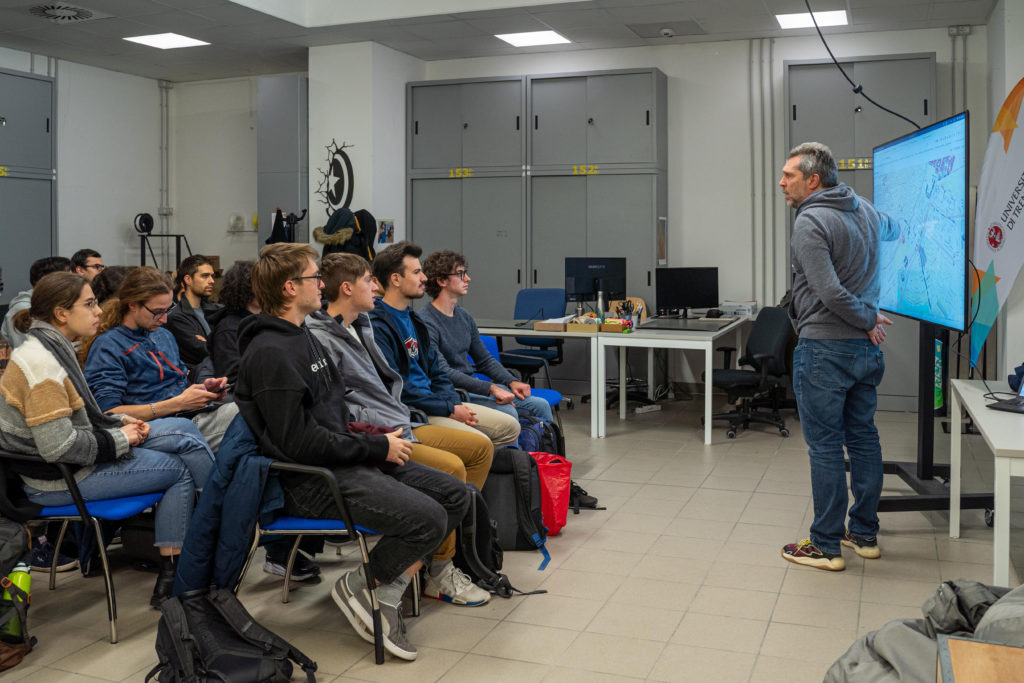
VISITS AND WORKSHOPS FOR SCHOOLS
Upon request, the FabLab opens its doors to high school students for guided tours of the space and a presentation of the machines.
These tours also include a workshop, in which the tutor works together with the students to design, for example, a simple 3D model that will then be printed to show the whole process step by step.
These activities are a great way to introduce high school students to the world of digital fabrication and to put them in touch with the university environment.
